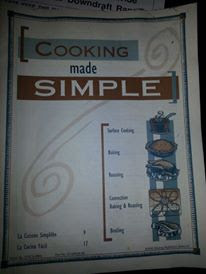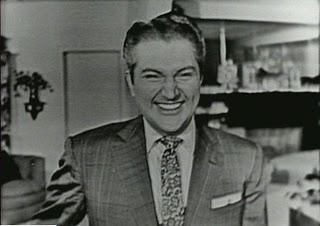Keyboard Stylings of Blasco de Nebra
Program Notes for Musica della sera broadcast of Thursday, November 29, 2012. (Available for streaming until 12/6/12 on the KUSP Music Show Player.)
This week's program of Musica della sera opens with a keyboard composition of Manuel Blasco de Nebra (1750-1784). He, like his father, was organist for the Seville Cathedral. He died young, and only a fraction of his compositions have survived─but enough to show his expressive talent. The influence of Domenico Scarlatti is immediately noticeable, but more the introspective sweetness than the dazzling virtuosity. I only recently discovered this composer from this Harmonia Mundi recording that KUSP possesses It features Spanish pianist Javier Perianes, also new to me.
The virtuosity and sweetness of Domenico Scarlatti follows in a performance of Georgian-American pianist Eteri Andjaparidze. I discovered Scarlatti in my young teens through the wonderful recordings of Vladimir Horowitz, so I'm quite at home hearing these harpsichord pieces played on piano. I hear a similarity of Horowitz's sensibility in Andjaparidze' interpretation.
I discovered the music of Francesco Maria Veracini on the same evening I discovered Blasco de Nebra, on the left side of the KUSP's vast classical music shelf; this has created wholly arbitrary association between the two composers for me. Here is one of Veracini's violin sonatas featuring John Holloway.
Sammartini's Recorder Sonata in F Major is one of the greatest hits of the high baroque. Michala Petri is just the highly acclaimed recorder virtuoso of our day to perform it.
Alessandro Scarlatti was Domenico's very prolific father. Famous for his many operas, here is an instrumental work for a small ensemble, unusual in that its final movement is a virtuosic toccata for solo harpsichord.
We hear trumpet virtuoso Maurice André plays two baroque concertos, by Vivaldi and Loeillet, as I continue my adventures in vinyl, revisiting the sounds of the past, of which the Musical Heritage Society was a big part.
The next three pieces are dedicated to my 9-year old son who is a few weeks in to learning how to play the trombone. The Hosannah by Franz Liszt features the bass trombone that fairly makes the walls shake. The next two trombone pieces are by Bernhard Krol, a horn player now in his 90's, and celebrated 19th Century trombonist Friedrich August Belcke.
Next Dieter Klöcker, clarinet, and the Vlach Quartet Prague, perform Samuel Gardner's Hebrew Fantasy. This is one of several delightful compositions on Jewish themes arranged for clarinet and string quartet in a a 2-disc set on the CPO label: Esquisses Hébraïques: Clarinet Quintets on Jewish Themes.
The show concludes with two songs by Franz Liszt sung by Angelika Kirchschlager: "La Perla" (The Pearl), sung in Italian, and "Wandrers Nachtlied I: Der du von dem Himmel bist", by Goethe. This is Liszt's 3rd version from 1860. The first version from 1842 is also featured on the Hyperion album.
This week's program of Musica della sera opens with a keyboard composition of Manuel Blasco de Nebra (1750-1784). He, like his father, was organist for the Seville Cathedral. He died young, and only a fraction of his compositions have survived─but enough to show his expressive talent. The influence of Domenico Scarlatti is immediately noticeable, but more the introspective sweetness than the dazzling virtuosity. I only recently discovered this composer from this Harmonia Mundi recording that KUSP possesses It features Spanish pianist Javier Perianes, also new to me.
The virtuosity and sweetness of Domenico Scarlatti follows in a performance of Georgian-American pianist Eteri Andjaparidze. I discovered Scarlatti in my young teens through the wonderful recordings of Vladimir Horowitz, so I'm quite at home hearing these harpsichord pieces played on piano. I hear a similarity of Horowitz's sensibility in Andjaparidze' interpretation.
I discovered the music of Francesco Maria Veracini on the same evening I discovered Blasco de Nebra, on the left side of the KUSP's vast classical music shelf; this has created wholly arbitrary association between the two composers for me. Here is one of Veracini's violin sonatas featuring John Holloway.
Sammartini's Recorder Sonata in F Major is one of the greatest hits of the high baroque. Michala Petri is just the highly acclaimed recorder virtuoso of our day to perform it.
Alessandro Scarlatti was Domenico's very prolific father. Famous for his many operas, here is an instrumental work for a small ensemble, unusual in that its final movement is a virtuosic toccata for solo harpsichord.
We hear trumpet virtuoso Maurice André plays two baroque concertos, by Vivaldi and Loeillet, as I continue my adventures in vinyl, revisiting the sounds of the past, of which the Musical Heritage Society was a big part.
The next three pieces are dedicated to my 9-year old son who is a few weeks in to learning how to play the trombone. The Hosannah by Franz Liszt features the bass trombone that fairly makes the walls shake. The next two trombone pieces are by Bernhard Krol, a horn player now in his 90's, and celebrated 19th Century trombonist Friedrich August Belcke.
Next Dieter Klöcker, clarinet, and the Vlach Quartet Prague, perform Samuel Gardner's Hebrew Fantasy. This is one of several delightful compositions on Jewish themes arranged for clarinet and string quartet in a a 2-disc set on the CPO label: Esquisses Hébraïques: Clarinet Quintets on Jewish Themes.
The show concludes with two songs by Franz Liszt sung by Angelika Kirchschlager: "La Perla" (The Pearl), sung in Italian, and "Wandrers Nachtlied I: Der du von dem Himmel bist", by Goethe. This is Liszt's 3rd version from 1860. The first version from 1842 is also featured on the Hyperion album.
La Perla (The Pearl)
by Thérèse von Hohenlohe-Waldenburg
Sono del mare bianca la figlia,
son di conchiglia pegno d’amor. Nella nativa carcere oscura vivo sicura senza dolor.
Madre amorosa mi chiude in seno,
fronte sì pieno di voluttà. Aura non beo, luce non veggo, eppur non chieggo più libertà.
Ahi! se per forza dal fondo mio
tolta son io, tratta lassù, a lume giungo, l’aer respiro, ma già sospiro per schiavitù!
In vil mercato passo venduta
e rivenduta col nuovo sol, chi non si cura di mia bellezza, chi l’accarezza, chi sua la vuol.
Finché per ultimo forse in un
serto
di spin conserta io brillerò, e come lagrima pendula al ciglio, il duol d’esiglio accuserò. |
I am the daughter of the white
sea,
I am the love-token Of the shellfish. In my dark native prison I live in safety, Without pain.
A loving mother holds me to her
breast,
With a face so full Of delight. I feel no breeze, I see no light, Yet I ask No greater freedom.
Ah! If I am taken by force
From my bed, And dragged up above, I reach the light, I breathe the air, But sigh That I am enslaved!
In base trading I am sold
And resold Each new day. One ignores my beauty, Another cherishes it, And wants it for his own.
Until at last, in a crown
Of thorns, I shall perhaps shine, And like an eye’s quivering tear Reveal The pangs of exile. |
Wandrers
Nachtlied, by Johann Wolfgang von Goethe
Der du von dem Himmel bist,
Alles Leid und Schmerzen stillest,
Den, der doppelt elend ist,
Doppelt mit Erquickung füllest;
Ach, ich bin des Treibens müde!
Was soll all der Schmerz und Lust?
Süßer Friede,
Komm, ach komm in meine Brust!
Translation by Henry Wadsworth Longfellow:
Wanderer's
Nightsong
Thou that from the heavens art,
Every pain and sorrow stillest,
And the doubly wretched heart
Doubly with refreshment fillest,
I am weary with contending!
Why this rapture and unrest?
Peace descending
Come ah, come into my breast!



Comments